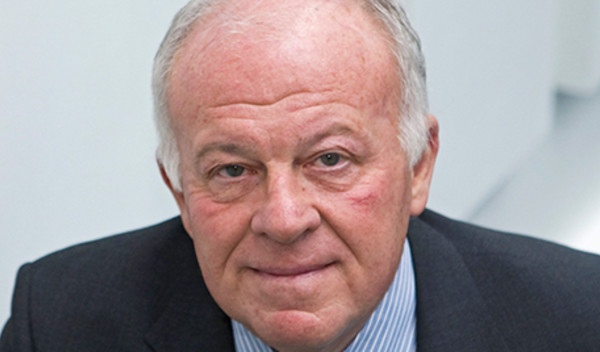

Mr Hargreaves retains a 32 per cent stake in platform provider Hargreaves Lansdown, but has no involvement in the day-to-day running of the business.
He said "it would be wrong" to say markets had done well in recent years, rather than certain fund managers - such as Terry Smith and Nick Train - had done better than their peers.
Mr Hargreaves said: "There has also been a lot of flighty growth in the market, in things like pharma and biotech, and a lot of those go bust in the end.
"Illiquid assets should not be held in open-ended funds, it’s that simple, and I think a lot of people realise now after what happened with Woodford, I certainly hope there is a change.
"The reality is platform buy lists, especially the Hargreaves Lansdown one, have been key to the fortunes of some fund managers. Maybe the Woodford issue will mean people take them with a pinch of salt in future."
He added: "The average fund manager has not done very well over the past decade, that’s because they keep looking backwards. They decide there is a period where small caps always do well, or when cyclical stocks do well, or value stocks do well, and try to conform to that. But that’s just old thinking.
"The idea that you can buy these things based on history, and keep them in a drawer until they do well, but that’s just old thinking. Two sectors that represent this are retail and property. Property is going to be worth less in future, because people use the internet for shopping now.
"It used to be if you wanted something you had to drive to a store, and queue and buy it, it could take three hours, now it can be done online, and you get it the next day anyway, its marvellous, but it means property and retail will be worth less.
"I think 90 per cent of the value type stocks will go bust, but some managers buy them and are waiting for them to come back, but that’s not going to happen."
Mr Hargreaves is chairman of Blue Whale Capital, and has a holding worth more than £40m in the Blue Whale Growth fund, a global equity mandate for which he provided the seed capital. The fund has grown to £211m in size and has returned 10 per cent over the past year, compared with 4 per cent for the average fund in the IA Global sector.
He said the Blue Whale fund was not on any buy lists and he felt, given its strong performance to date, it had not had the credit it deserved.
Mr Hargreaves said: “We want there to be lots of funds that have done well, as that’s good for the market. I am not actually thrilled with how much money we have raised for Blue Whale so far.
"I would look at the success of Fundsmith, I’ve known Terry Smith for years, and it has done well. He had a lot of publicity at the start because he had the cheapest fund in the sector, now its one the dearest, and he had a nice run at the start because one of the companies he bought was subject to a takeover.
"And Nick Train is another of the ones that have done very well, and there are more like him. And there are others who have been more speculative, have dipped in and out of these biotech stocks and its worked."
He said Stephen Yiu, who runs Blue Whale Growth, was "one of the few" managers who understood value investing was declining.
James Klempster, investment director at multi-asset fund house Momentum is more positive on the outlook for value investing.
He said it has "always been the case that some of the stocks that look cheap are cheap for a reason, that they are becoming obsolete, but it’s the job of the value manager to identify those and avoid them, while buying the rest".
The Blue Whale fund has 15 per cent in cash, but Mr Hargreaves said this is not a view that the market is going to decline sharply.
He said: “When everyone is saying markets are bad, when everyone is highlighting the problems with the US and China, and with other issues, that’s not the time to worry, the time to worry is when everyone is saying everything is fine.
"People say to us, 'why don’t you use the cash in the fund to buy more of the holdings you have', but I would say, what’s wrong with having the liquidity. The stocks we want are those that have share prices that can grow even faster than the company, and the company to be growing as well, and there aren’t that many of those in the world."
Mr Hargreaves added: “The Blue Whale fund could be liquidated and all cash returned to investors in twenty four hours, and if the fund got bigger than it is now, it might take a little longer, but that's all, you can always sell £100m of Google shares quickly."
david.thorpe@ft.com




